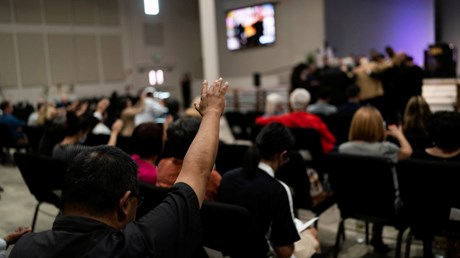After Shooting, Churches Navigate China-Taiwan Tensions Under the Surface
While Presbyterian Church in Taiwan has historic ties to the push for independence, most Chinese congregations in the US avoid highlighting the ongoing political polarization.

As soon as they heard that a gunman attacked a Taiwanese church in California on Sunday, some Taiwanese correctly assumed political motives.
The clash between the desire for Taiwan’s independence and the desire for its reunification with China has a long history with current relevance. Still, among diaspora churches in the US, the issue typically lingers beneath the surface.
At Chinese-speaking congregations, where Christians from mainland China worship together with those from Taiwan and Hong Kong, pastors usually want to avoid stirring political division. Even some predominantly Taiwanese churches may have members that fall on either side.
But a smaller number of older, Taiwanese-speaking congregations—like Irvine Taiwanese Presbyterian Church, where the shooting took place—are more likely to see the issue as a significant part of their cultural and theological background. Though the Southern California church belongs to the Presbyterian Church (USA), it also has a close, deep-rooted relationship with the Presbyterian Church in Taiwan.
“Presbyterian Church in Taiwan is a church that advocates for Taiwan independence,” said T. N. Ho, a Taiwanese Christian and a former elder of a Northern California Bay Area Chinese Church. “Other Chinese churches do not have a clear-cut position.”
The biggest Protestant denomination on the island, the Presbyterian Church in Taiwan has long defended the island’s people and culture—spanning from the 19th-century missionaries who prioritized preserving indigenous leaders and traditions to the church’s political stances favoring democracy over Chinese nationalist rule in the 1970s, ’80s, and ’90s. The church’s symbol is …
